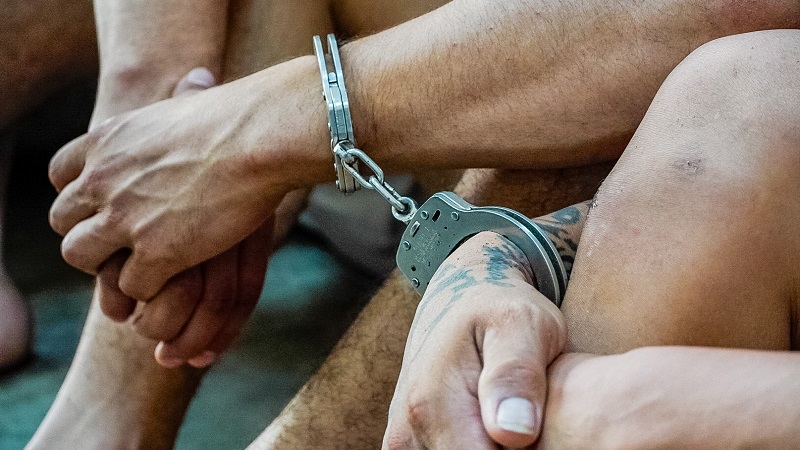El Salvador’s Congress on Wednesday passed a reform of the Law Against Organized Crime that increases penalties for people named as leaders of criminal groups and also allows mass trials. It also allows for provisional detention for up to 24 months without trial. The measure was approved with 67 votes out of a possible 84 in the Legislative Assembly.
The reform, proposed by President Nayib Bukele, comes in the context of the state of emergency approved in March last year in the Central American country following a wave of violence that Bukele’s government said was caused by a dispute between rival gangs. Bukele has requested the extension of the state of the emergency 16 times. Over 70,000 people have been detained during the period of emergency rule, accused of belonging to or collaborating with criminal groups.
Under the new rules, it is allowed to “submit accused persons to a single criminal proceeding for belonging to the same terrorist structure or criminal group”. Mass trials can have up to 900 people in the dock simultaneously. In addition, gang leaders had their maximum sentence increased from 45 to 60 years in jail.
Human rights organization Cristosal criticized the move and said the reforms in the new law hit hardest those who “live in poor areas and have informal work”.
In a statement released on July 27, a day after the law was passed, Cristosal stated, “The reforms could lead to greater impunity, given that collective trials would favor punishing gang membership over crimes such as homicide or extortion.”
The human rights organization condemned that, “The reforms are aimed at favoring a conviction, providing facilities to the prosecution, denaturalizing the role of judges, prosecutors and police, building an arbitrary justice, dictated by government powers.”
More than 6,400 documented human rights abuses were committed during the emergency regime and 174 people died in state custody, the Inter-American Commission on Human Rights reported earlier this month.





